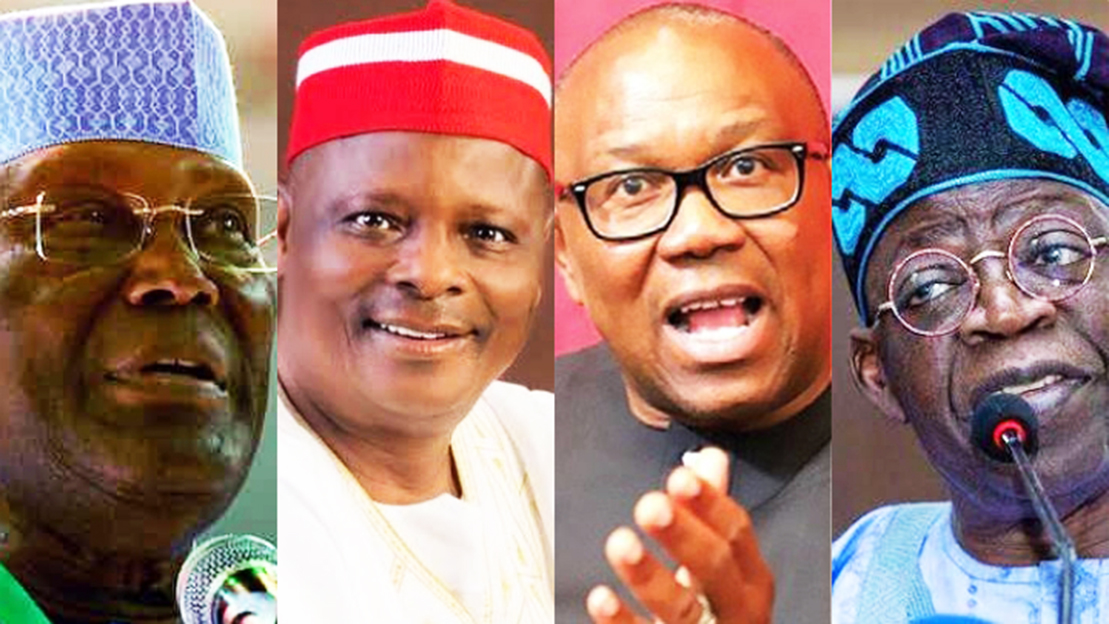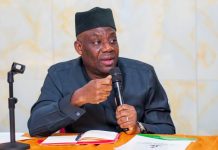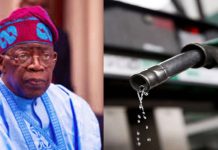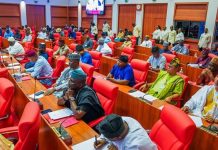Voters in Africa’s most populous country, Nigeria, will head to the polls this week to select their next president amid mounting unhappiness in the country due to worsening insecurity and economic hardship. Will any of the frontrunners, most of whom have been in the political system for decades, be able to turn the country around?
Nigeria’s outgoing President Muhammadu Buhari is stepping down after nearly eight years in power amid a backdrop of chaos and widespread unrest, as many people are unable to access the cash they need to buy food because of a botched roll-out of new banknotes.
But the cash crisis is not the only problem Nigerians face, with the last year being marked by struggle and tragedy, including high inflation and deadly attacks by gunmen against innocent civilians.
Who is running for president?
A total of 18 candidates are campaigning for the top job, but only three have a realistic chance of winning, according to opinion polls. Only one of the 18 is a woman.
Bola Ahmed Tinubu
Bola Ahmed Tinubu, 70, is standing for the governing All Progressives Congress (APC) party. Known as a political godfather in the south-west region, he wields huge influence but has been dogged by allegations of corruption over the years and poor health, both of which he denies. Some say his campaign slogan Emi Lokan, which means “it’s my turn [to be president]” in the Yoruba language, shows a sense of entitlement.
Atiku Abubakar
Atiku Abubakar, 76, is running on behalf of the main opposition People’s Democratic Party (PDP). He has run for the presidency five times before – all of which he has lost. Most of his career has been in the corridors of power, having worked as a top civil servant, vice-president under Olusegun Obasanjo and a prominent businessman. Just like Mr Tinubu, he has been accused of corruption and cronyism, which he denies.
Peter Obi
Peter Obi, 61, is hoping to break up the two-party system which has dominated Nigeria since the end of military rule in 1999 and is running for the little known Labour Party. Although he was in the PDP until last year, he is seen as a relatively fresh face and enjoys fervent support on social media and among Nigeria’s youth. The wealthy businessman served as governor of the south-eastern Anambra State from 2006 to 2014. His backers, known as the “OBIdients” say he is the only candidate with integrity, but his critics argue that a vote for Obi is wasted as he is unlikely to win.
Who is likely to win?
Convention suggests a candidate from one of the two main parties will win – Mr Atiku or Mr Tinubu. But Mr Obi’s supporters are hoping he can spring a surprise if they can mobilise the large youth vote to back him.
When is the election?
It is due to take place on Saturday 25 February 2023. If there is no clear winner, a second round will be held within three weeks. There will also be elections for the country’s powerful state governors on Saturday 11 March.
The head of the election commission has dismissed suggestions that the vote could be delayed because of insecurity.
When will the election results be announced?
In the last two presidential elections the winner has been known on the third day after voting.
But votes will be counted as soon as voting ends on Saturday 25 February. Those who stay behind at their polling station will have the result announced to them, but it is a long process before all the results work their way up to Abuja from the tens of thousands of polling units across the country.
BVAS might speed up the process this year, but Inec-appointed officials will still have to travel to Abuja from the 36 states with hard copies to be read aloud.
Only then will the Inec chairman announce a winner – or that a second round is needed.
How does the election work?
In order to win, a candidate has to obtain the highest number of votes nationwide, and more than a quarter of ballots cast in at least two-thirds of Nigeria’s states.
If none of the candidates manage this, there will be a second round run-off between the top two candidates within 21 days.
What does BVAS mean and how does it work?
This election is different to previous ones because a new system is being used – the Bimodal Voter Accreditation System (BVAS), which is a device introduced by Inec in 2021 aimed at stopping election fraud.
The BVAS is essentially a small rectangular box with a screen that is more technologically advanced than the Smart Card Readers used in the past.
The key benefit of the BVAS is that it has the capacity to perform dual identification of voters on election day through their fingerprints and facial recognition. This should stop people without valid PVCs from voting, as well as those who are ineligible to vote attempting to do so.
Another aspect of the BVAS is that it uploads vote results directly to the Inec results portal for all to see, which in theory means results cannot be tampered with.
There have been concerns about the BVAS after it experienced glitches in state-wide elections in 2021 and 2022, but Inec insists these problems have been resolved.
What do you need to vote?
In order to vote, you need to have a valid Permanent Voter’s Card (PVC), which essentially shows that you are registered to vote and proves the identity of the voter.
The PVC contains biometrical data of the voter, used as further verification on election day. This data is stored in the card.
The deadline to collect a PVC has passed, so if you don’t have one, you will not be able to vote.
To cast your ballot, you need to arrive at your polling station between the hours of 08:30 and 14:30 with your PVC. As long as you’re in the queue to vote by 14:00, you will be allowed to cast your ballot, Inec says.
Nigerians living in the diaspora are not allowed to vote abroad.
What other elections are being held?
As well as the presidential vote, the public will also be choosing their representatives for parliament – the National Assembly. There are 469 legislators made up of 109 Senators and 360 members of the House of Representatives. Two weeks later on 11 March there will also be elections to choose governors for 28 out of Nigeria’s 36 states.
Credit: bbc.com









